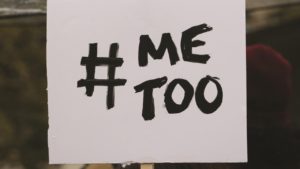Posted by Courtney Statt, GD Poetry Reader for 7.1
Years ago when dystopian fiction became the new thing, I fell in love with the world that James Dashner created in the Maze Runner Series. I read the series, then re-read the series, and told everyone who stood still for a second to–you guessed it—to read the series. As a kid, I always had a book in hand–some things never change–and in all my searching, I had never found characters that felt as real to me as the ones in Maze Runner. They were the first characters that I read that didn’t feel like characters in a book; they were my friends.
Flash forward to February of this year…
Scrolling through various forms of social media, I was bombarded with headlines screaming, “Children’s Book industry has its #MeToo moment!” “Maze Runner author dropped by US publisher!” and, “Maze Runner author deeply sorry over sexual misconduct allegations”.
I opened as many tabs as I could before they started to disappear into the side of my laptop screen. Maybe there is a different author named James Dashner? Nope, no luck there. How could this be true? He is writes books for children, so how could such a person be accused of sexual harassment? It was during those questions that I saw the problem with those questions.
I assumed something about the person’s morals based on his writing and audience. On top of that, I assumed that the literary world would be perfect and devoid of all evil. Seeing that I was terribly wrong, I did some more digging. The list of authors who have been accused during the #MeToo movement is pretty expansive: Pulitzer Prize winner, Junot Diaz, Sherman Alexie–who won the National Book Award–and another YA author, Jay Asher, have all made the list.
Of course, the “separate the art from the artist” argument comes up when any artist is accused of anything negative, but I think it’s more complicated than that. We can enjoy the stories that these people create, but will we ever be able to look at them the same way again?
For me, the answer is no. There’s a feeling of disappointment that keeps the reader from being able to connect to the books in the way that they originally did. For me, I didn’t even feel comfortable keeping the Maze Runner books on my shelves anymore.
Although I do not discount the artistry of some of these authors, I can’t knowingly support literature from someone who has engaged in sexual harassment or abuse. For me, it’s an abuse of power and position. We celebritize authors; to some, we give movie deals, signings, etc. How can we knowingly put someone on a pedestal who has taken advantage of their position? This gets even more complicated when the author’s main audience is composed of young teens and middle schoolers. Is there a way to value and teach their art without glorifying them? How far can we separate the author from the text? Honestly, these are questions that I don’t have answers to yet, but I know that I’m not alone in my uncertainty. Check our Claire Dederer’s article, in which she examines the question: “can I love the art but hate the artist?”
The #MeToo movement is far from over, and probably, unfortunately, many more beloved authors will be accused. My hope is that these bouts of darkness in the literary industry make the bright times even brighter.

